Menu
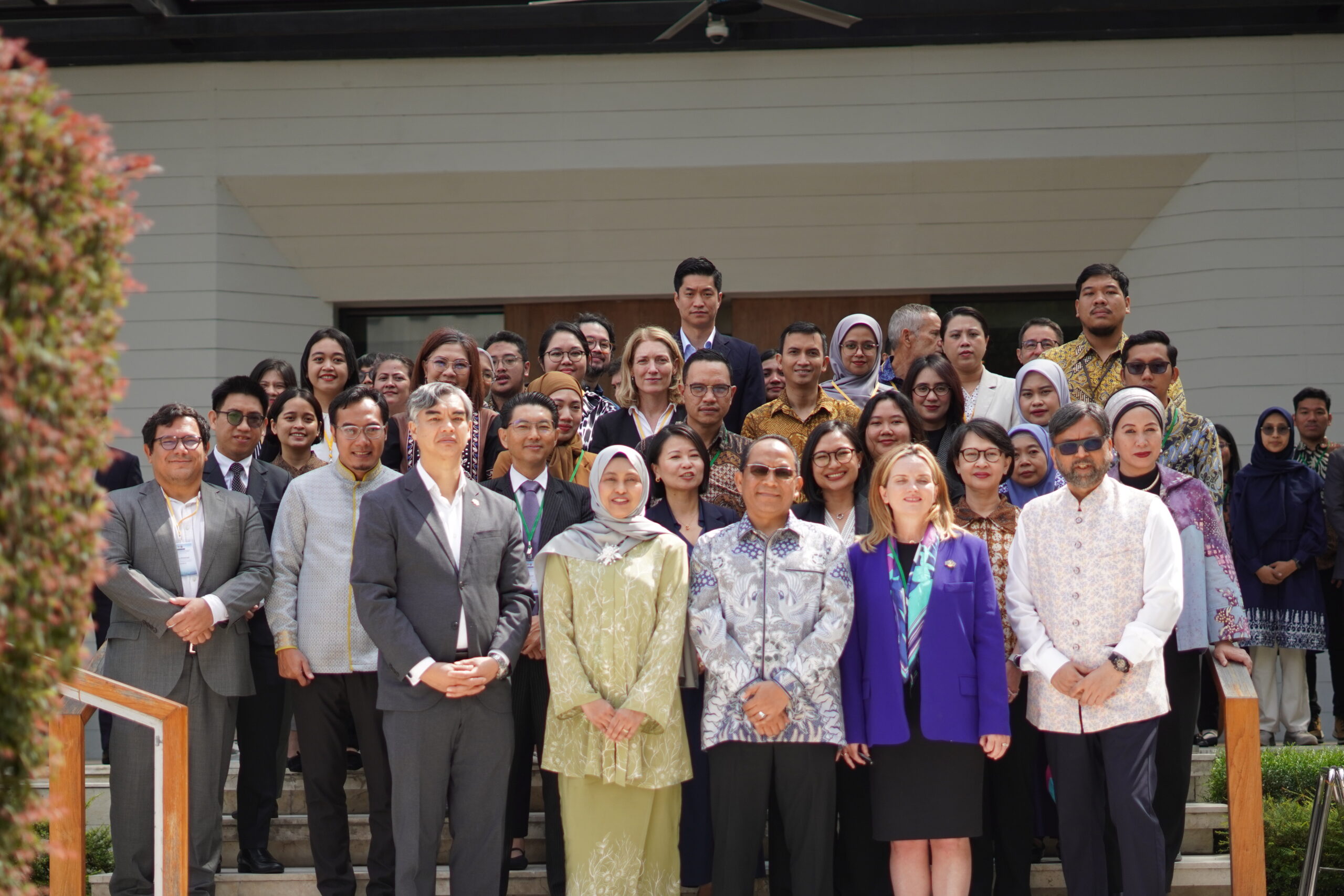
Photo 1. Group photo with the participants and speakers of the ASEAN Public Conference on Unlocking Energy Transition Finance Towards Inclusivity and Sustainability in ASEAN.
On Friday, 9 May 2025, the ASEAN Centre for Energy (ACE) in collaboration with Permanent Mission of Malaysia to ASEAN held a public conference titled “Unlocking Energy Transition Finance Towards Inclusivity and Sustainability in ASEAN” in Jakarta. Attended by over 90 participants from government, private sector, think-tank and civil society organisations in the energy and energy financing sector, this event aimed to discuss cooperation and collaboration among stakeholders in terms of energy transition finance, including the ASEAN Power Grid (APG). The event also featured high-level attendance from H.E. Sujiro Seam, Ambassador of the European Union (EU) to ASEAN, and H.E. Mr. Jayant N. Khobragade, Ambassador of India to ASEAN, reflecting the spirit of international cooperation.
This conference represented an important milestone in fostering regional cooperation to overcome the financial and technical challenges of energy transition. By bringing together key stakeholders from public and private sectors, the event emphasised the need for inclusive and sustainable financing solutions to support ASEAN’s energy goals, including the APG. This collaborative approach sets the stage for accelerated progress toward a more equitable and environmentally responsible energy future across the region.
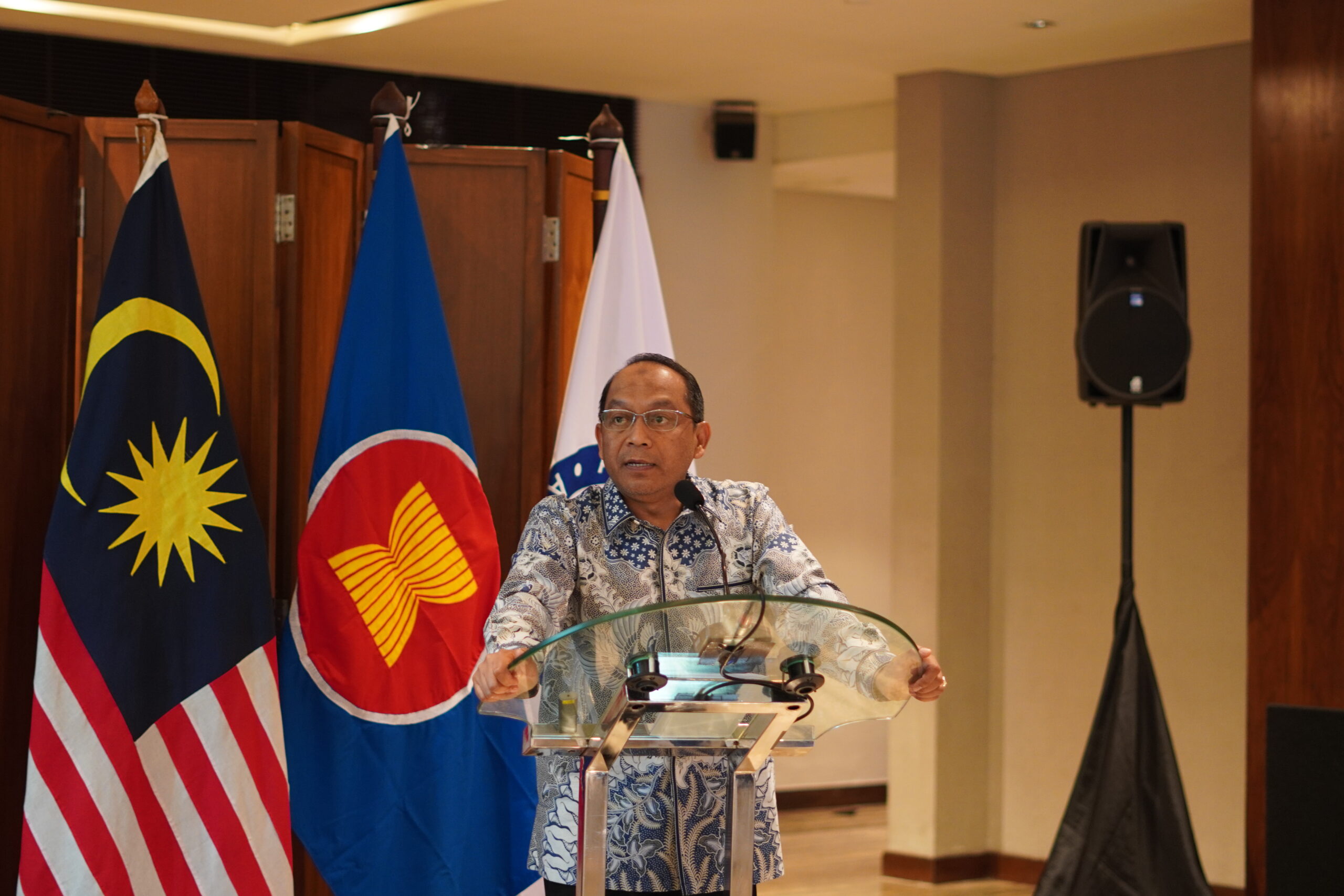
Photo 2. Dato’ Ir. Ts. Razib Dawood, Executive Director of ASEAN Centre for Energy (ACE), delivering opening remarks.
The event opened with remarks from Dato’ Ir. Ts. Razib Dawood, Executive Director of ACE, who emphasised ACE’s vital role as the energy arm of the ASEAN Secretariat, serving all 10 member countries. He pointed up the importance of energy security for the region. He also stressed the increasing relevance of the APG implementation, highlighting its potential to interconnect the region and mitigate disruptions. Dato’ Razib also talked about how such initiatives bring opportunities in trade, environmental sustainability, and prevention of energy shortages, while cautioning that political and financial risks must be carefully managed to ensure the plan’s success and secure the future of ASEAN energy independence.
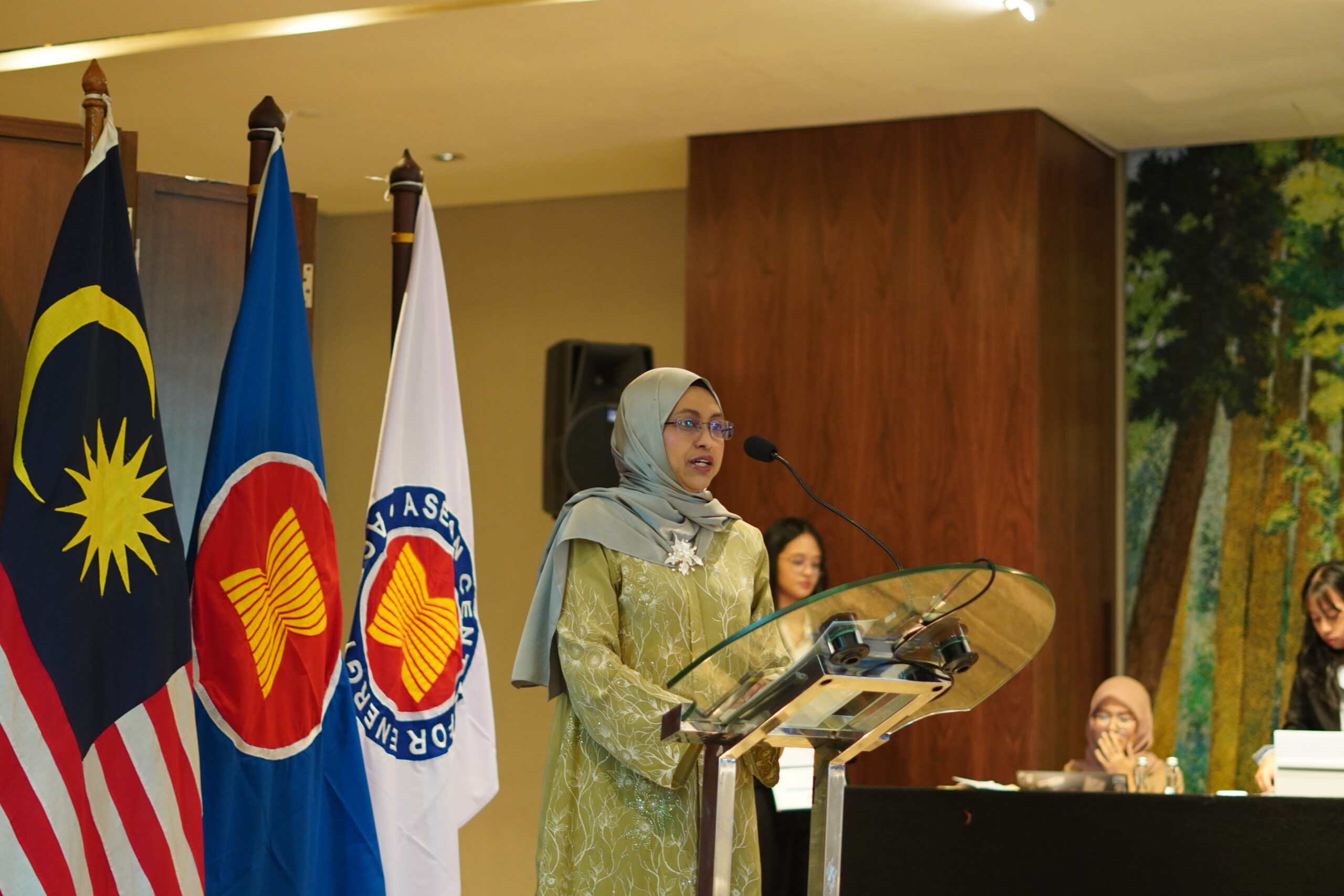
Photo 3. H. E. Datin Sarah al Bakri, Permanent Representative of Malaysia to ASEAN, delivering opening remarks.
Following this, H. E. Datin Sarah al Bakri, Permanent Representative of Malaysia to ASEAN, addressed the rapidly evolving energy landscape in ASEAN. She noted that the challenge goes beyond simply powering homes and industries, focusing also on providing clean, affordable, and environmentally friendly energy access. With energy demand projected to rise until 2040, she emphasised that reliance on traditional energy sources would undermine climate and development goals. ASEAN’s target to increase renewable energy’s share to 23% of the primary energy supply by 2025 was highlighted as a critical step. H.E. Datin pointed out that achieving this requires structural changes, particularly in financing, citing an estimated USD 229.4 trillion needed for the full green energy transition by 2050. She concluded by outlining three key considerations: viewing renewable energy transition as an economic growth driver, ensuring financial support benefits all ASEAN states, and upholding fairness and justice throughout the green energy transition process.
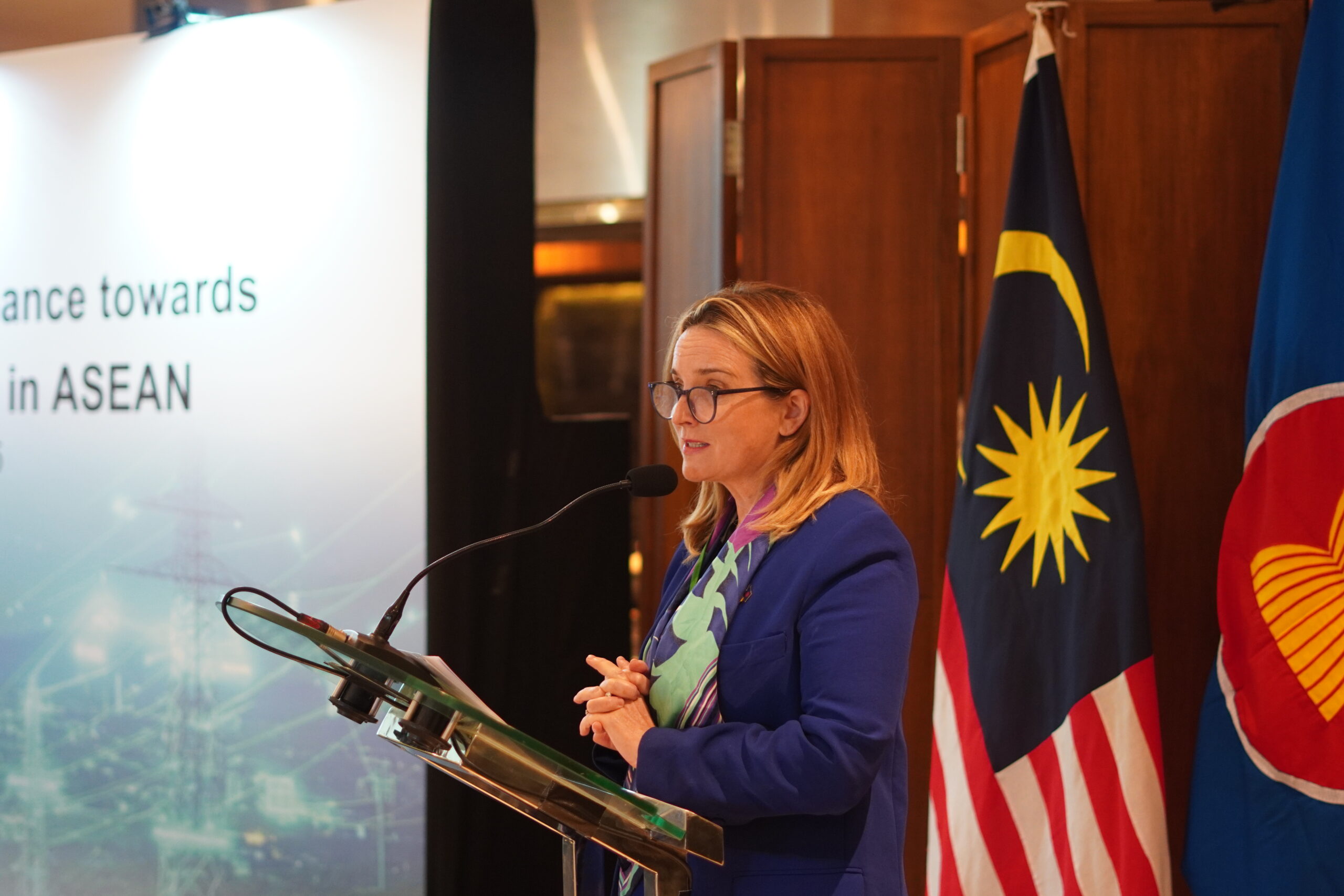
Photo 4. H. E. Tiffany McDonald, Ambassador of Australia to ASEAN, delivering a keynote speech.
After the opening remarks, H. E. Tiffany McDonald, Ambassador of Australia to ASEAN, in her keynote speech, highlighted Australia’s continued support for ASEAN’s energy transition and regional interconnection efforts. This includes activities such as strengthening system operations, harmonising energy efficiency standards, and conducting techno-economic studies for the APG. She also noted Australia’s financial commitments, including a USD 50 million equity investment under the Southeast Asia Investment Financing Facility and a new USD 10 million initiative to support regional collaboration and capacity building. Australia remains committed to working with ASEAN to unlock opportunities and advance an inclusive and sustainable energy transition.
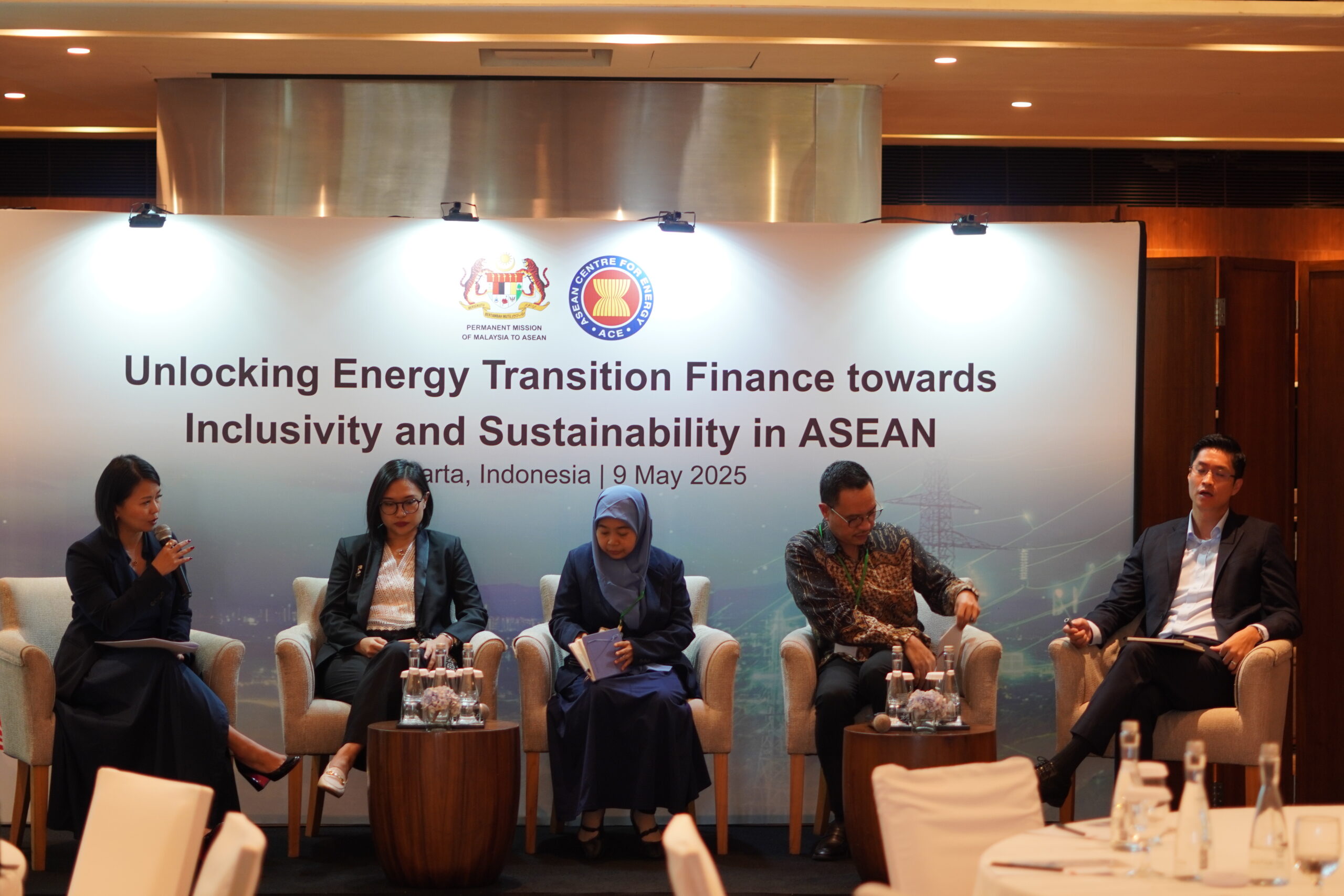
Photo 5. (Left-Right) Jennifer Tay, Partner, PwC Asia Pacific Infrastructure Leader; Tiza Mafira, Director at Climate Policy Initiative Indonesia; Ambiyah Abdullah, Senior Researcher of MPP at ACE; Delano Dalo, Project Director at PT SMI; Jason Ving, Head of ESG at HSBC Limited during the first panel.
The first panel brought together voices from finance and policy to address gaps and opportunities in ASEAN’s energy transition. Tiza Mafira, Director at Climate Policy Initiative Indonesia, highlighted the disparity in green versus fossil fuel investment and emphasised the need to increase private sector participation. Ambiyah Abdullah, Senior Researcher of Energy Modelling and Policy Planning (MPP) at ACE, stressed that ASEAN’s rising energy demand calls for strong policy support and robust monitoring systems to meet decarbonisation targets. Delano Dalo, Project Director at PT SMI, pointed out financing gaps and explained how SMI’s tools like green bonds and blended finance are tailored to support Indonesia’s energy goals. Jason Ving, Head of ESG at HSBC, underlined the importance of policy stability in attracting capital and shared their experience in blended finance efforts across Asia.
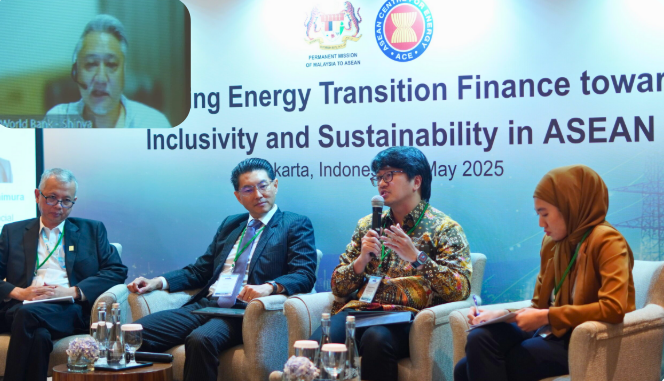
Photo 6.(Left-Right) Shinya Nishimura, Senior Financial Specialist and Energy Program Coordinator of the World Bank (online), Warsono Mustam Martono, Executive Vice President (EVP) System Planning of PT PLN (Persero); Alvin Lim, Chief Operating Officer of Sarawak Energy; Adrianto Darmoyo, Vice President of Renewables MEDCO Power Indonesia; Nadhilah Shani, Manager of Power Generation and Interconnection (PIN), ASEAN Centre for Energy, during the second panel.
The third session, moderated by Nadhilah Shani, Manager of the Power Generation and Interconnection (PIN) Department at ACE, focused on financing renewable energy and advancing cross-border electricity transmission to strengthen ASEAN interconnectivity. Adrianto Darmoyo from Medco Power emphasised the company’s solar and wind expansion and highlighted Indonesia’s key role in regional energy trade, while also calling for better project bankability and policy coordination. Alvin Lim of Sarawak Energy discussed energy mix goals and regional partnerships, stressing the need for harmonied regulations and reliable utility capabilities. Warsono Mustam Martono from PLN shared updates on potential interconnection projects with Sarawak and Singapore, underlining Indonesia’s renewable potential and transmission challenges. Shinya Nishimura from the World Bank, who joined the session online, highlighted climate finance gaps, the need for enabling policies, and upcoming initiatives like the ASEAN Power Grid Financing (APGF) programme to mobilise support.
The forum ended with closing remarks from Dato’ Ir. Ts. Razib Dawood who further emphasised that governments alone cannot tackle the region’s energy challenges. He underscored the importance of collaboration between public and private sectors to prioritise and advance interconnection projects like the ASEAN Power Grid. The Centre reaffirms its role as a facilitator for impactful initiatives and welcomes ongoing dialogue on key topics such as policy, business development, and regional opportunities to support ASEAN’s sustainable energy future.
